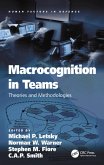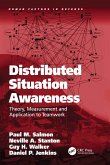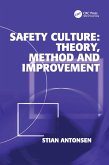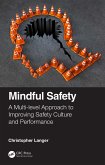Macrocognition Metrics and Scenarios: Design and Evaluation for Real-World Teams translates advances by scientific leaders in the relatively new area of macrocognition into a format that will support immediate use by members of the software testing and evaluation community for large-scale systems as well as trainers of real-world teams. Macrocognition is defined as how activity in real-world teams is adapted to the complex demands of a setting with high consequences for failure. The primary distinction between macrocognition and prior research is that the primary unit for measurement is a real-world team coordinating their activity, rather than individuals processing information, the predominant model for cognition for decades. This book provides an overview of the theoretical foundations of macrocognition, describes a set of exciting new macrocognitive metrics, and provides guidance on using the metrics in the context of different approaches to evaluation and measurement of real-world teams.
Dieser Download kann aus rechtlichen Gründen nur mit Rechnungsadresse in A, B, BG, CY, CZ, D, DK, EW, E, FIN, F, GR, HR, H, IRL, I, LT, L, LR, M, NL, PL, P, R, S, SLO, SK ausgeliefert werden.









